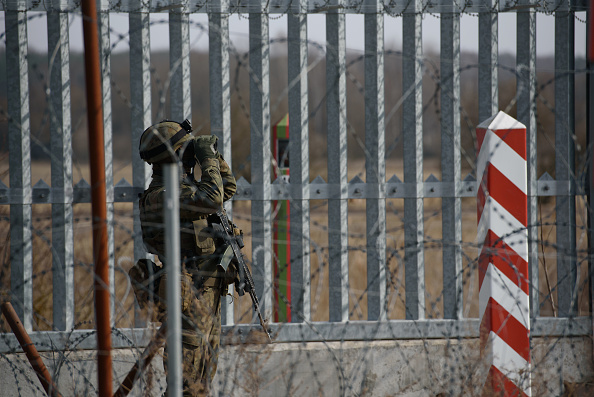Poland is bracing for a surge of illegal migration, with border officials warning that the country is becoming overwhelmed by an influx of migrants crossing from Belarus.
In an exclusive interview with Stanisław Pyrzanowski on Telewizja wPolsce24, a member of the Polish Border Guard sounded the alarm over what he described as an escalating crisis that threatens Poland’s security.
The border official, speaking anonymously to avoid reprisal, revealed the growing challenges facing Polish authorities, stating, “We will not evict them anywhere, we will not expel them anywhere. These people will stay with us.”
According to the officer, every migrant is registered based solely on their own declaration, making verification of their identity nearly impossible.
“It is impossible to check who they are. It is impossible to check whether they raped a woman a month ago or killed someone,” he admitted, highlighting the risks of unknown individuals entering Polish territory.
The border guard also pointed to the role of activists and pro-migrant NGOs, claiming they maintain contact with migrants even before they cross from Belarus into Poland, encouraging them to discard all paperwork to ensure they cannot be identified.
“Activists instruct migrants to abandon their documents, to come to Poland without documents,” he told Pyrzanowski, as cited by the wPolityce.pl news outlet.
Despite tightened measures, Poland’s ability to control the border is being undermined by procedural changes influenced by pressure from NGOs and international bodies critical of “pushbacks” — the practice of returning migrants directly to the border without formal processing. While previously, Polish authorities could immediately turn back undocumented migrants under local regulations, new protocols now require fingerprinting and data collection, even though the accuracy of such data remains dubious.
The border guard warned that these procedures are creating what he called a “Polish trace.” Once migrants are registered in Poland, they become Poland’s responsibility under the Dublin Regulation, even if they continue further west into Germany or beyond.
“Sooner or later, these people will end up in Germany, but in Germany, they will be returned to Poland,” he explained. Waiving migrants through with the hope they will move west and no longer be Poland’s problem is no longer an option.
However, neither Polish nor German authorities can reliably verify who these people truly are. Pyrzanowski emphasized that although security services sometimes recover incriminating evidence — such as videos of executions — from detainees’ phones, it remains difficult to determine ownership or intent.
“It’s just starting to get going because it’s warm, and the season is starting to kick off. The migratory pressure is intensifying,” the border guard warned.
He expressed concern that many countries of origin, such as Iraq or Afghanistan, refuse to accept deportees, arguing that these individuals pose a threat to their own national security.
“Even their own countries do not want these people,” he said.
The official warned that unless decisive action is taken by the liberal government led by Prime Minister Donald Tusk, Poland risks following the trajectory of Western European countries that have struggled to manage mass migration and maintain border security.
“What we have been observing in Western countries for years may soon become our reality,” the officer said. “If the Polish authorities do not take real action to defend our borders, our country will cease to be a leader in security.”






